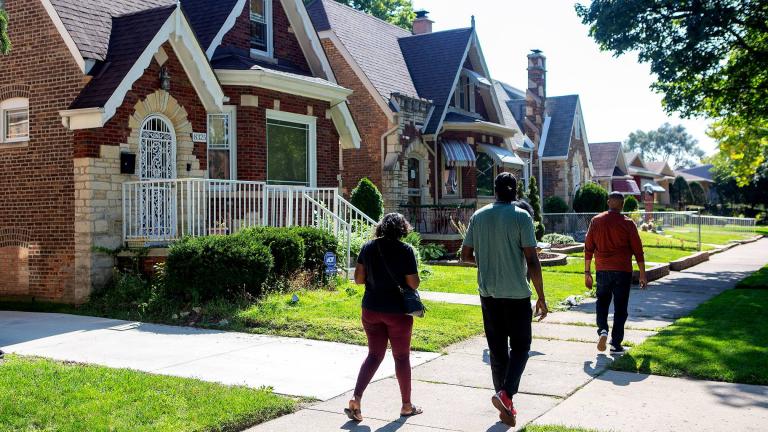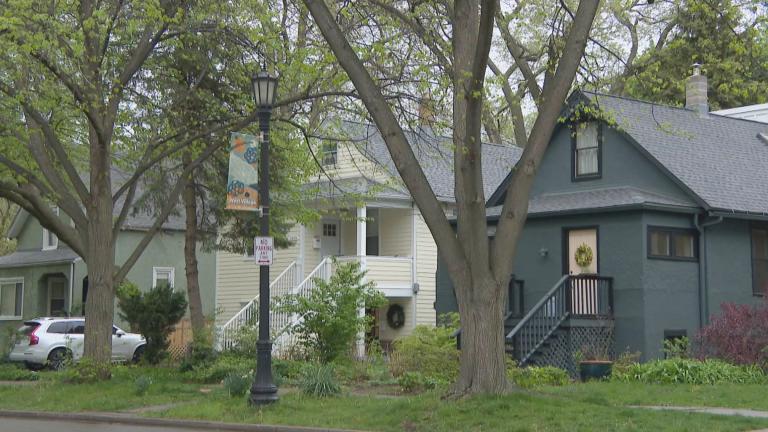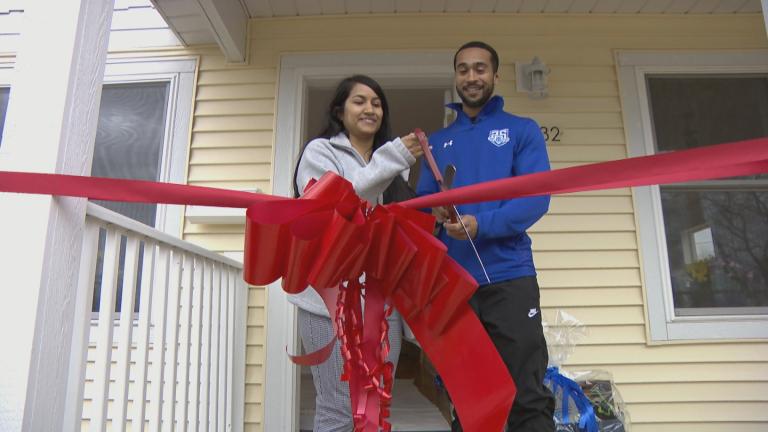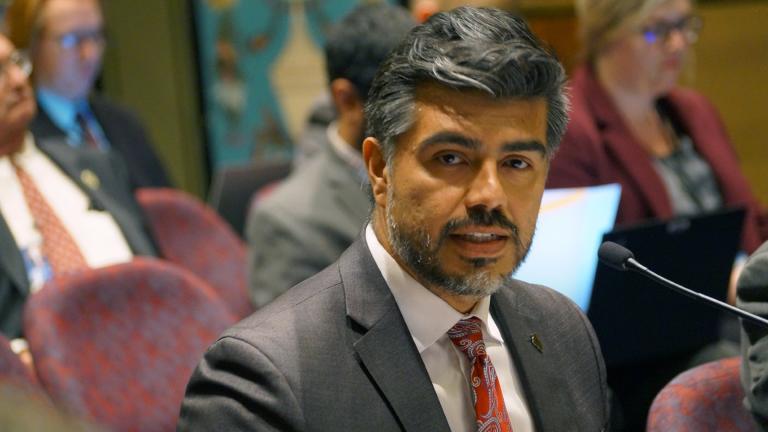 (U.S. Air Force photo by Airman 1st Class Alexxis Pons Abascal)
(U.S. Air Force photo by Airman 1st Class Alexxis Pons Abascal)
City officials are putting the final touches on a plan to replace the lead service lines responsible for contaminating the tap water in thousands of Chicago homes, Department of Water Management Commissioner Randy Conner told aldermen on Tuesday.
It will cost between $8 billion and $10 billion to replace the lead service lines the connect approximately 400,000 Chicago homes with water mains buried under Chicago streets, said Conner, who promised a final plan in the coming weeks. The metal can leach a brain-damaging chemical into drinking water.
“It is a daunting task,” Conner said, declining requests from several aldermen to reveal details about the plan during a hearing Tuesday on the city’s infrastructure needs held by the City Council’s Committee on Economic, Capital and Technology Development. “We have been working really, really hard on this.”
Budget Director Susie Park acknowledged that city officials will need help from the state and federal governments to foot the bill. The coronavirus pandemic blew a $700 million hole in the city’s 2020 budget, and the deficit for the city’s 2021 spending plan, set to be released later this month, is expected to be significantly larger.
“We’re checking the couches for all the quarters and the nickels to make sure this program is funded,” Conner said.
The city has $5 million set aside for a pilot program, Park said. It could cost between $3,000 and $10,000 to replace each home’s lead service lines, based on estimates from other cities.
Megan Vidis, a spokesperson for the Water Department, declined to answer questions from WTTW News about when the plan would be released or how it would be structured, saying only that it would be “voluntary” for homeowners.
Mayor Lori Lightfoot ordered the installation of water meters in Chicago homes to stop in July 2019 after city officials found elevated levels of lead in more than one in five metered homes they tested — 13 months after officials first learned of the issue.
Lightfoot’s order reversed a decision made by former Mayor Rahm Emanuel in November 2018 to continue installing water meters in homes, despite evidence that those homes had elevated levels of the brain-damaging chemical. The Environmental Protection Agency and the U.S. Centers for Disease Control and Prevention says there is no safe amount of lead in drinking water.
A 2013 study by EPA researchers linked the installation of meters and the replacement of water mains to high amounts of the heavy metal in drinking water, because lead pipes that are disturbed by street or plumbing work can release the material into the water supply. Lead is a neurotoxin and can be especially damaging to children and pregnant women.
Data gathered as part of a study of 510 Chicago homes in 2019 found that 22% of residences with new water meters had elevated levels of lead, the mayor’s office announced. Of those homes, 7.1% had lead levels above the 15 parts per billion action level set by the EPA, officials said.
Nearly 119,000 Chicago homes have water meters, which were touted by city officials as a way to reduce water usage and save money.
The EPA requires water agencies to act to reduce lead when more than 10% of tap water samples exceed the lead action level of 15 parts per billion. Chicago has met that standard annually based on a sample of homes tested by city officials.
In February, city officials launched a pilot program plan to conduct a pilot study of an ultrasonic water meter, in an effort to restart the city’s meter installation program. That study has been delayed by the coronavirus pandemic, Conner told aldermen.
For nearly 100 years, city law required that lead pipes be used to funnel water to single-family homes and small apartment buildings. Federal law banned the use of lead pipes in 1986, when it was discovered that they could cause brain-damaging toxins to leach into the water. The city has long considered water delivery pipes — or service lines — to be the responsibility of the property owner.
Residents with meters in their homes can get a free filter set, which includes a water pitcher and six cartridges to remove lead and register to get their water tested by calling 311, or going to chicagowaterquality.org to request a free kit.
Residents concerned about lead levels should flush or run water continuously for five minutes after it has been stagnant for six hours or more to reduce lead levels and exposure, city officials said.
Contact Heather Cherone: @HeatherCherone | (773) 569-1863 | [email protected]








